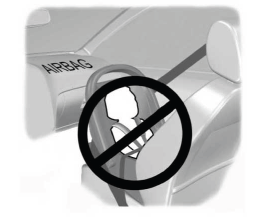Lincoln Aviator: Hydraulic Brake Actuation / Removal and Installation - Brake Pedal and Bracket
Removal
NOTE: Removal steps in this procedure may contain installation details.
-
Remove the BCM.
Refer to: Body Control Module (BCM) (419-10 Multifunction Electronic Modules, Removal and Installation).
-
NOTICE: Do not service the brake pedal or brake booster without first removing the stoplamp switch. The switch must be removed with the brake pedal in the at-rest position. The switch plunger must be compressed for the switch to rotate in the bracket. Attempting to remove the switch when the plunger is extended (during pedal apply) will result in damage to the switch.
Remove the stoplamp switch.
Refer to: Stoplamp Switch (417-01 Exterior Lighting, Removal and Installation).
-
Push inward on the tabs and remove the clevis pin. Discard the clevis pin.
.jpg) |
-
Remove the brake pedal and bracket assembly mounting nuts and bolts. Discard the nuts and bolts.
.jpg) |
Installation
-
NOTICE: Do not press, pull or otherwise move the brake pedal while installing the stoplamp switch. The switch must be installed with the booster push rod attached to the brake pedal and with the brake pedal in the at-rest position. Installing the switch with the brake pedal in any other position will result in incorrect adjustment and may damage the switch.
To install, reverse the removal procedure.
-
Install the brake pedal and bracket assembly and tighten the new nuts and bolts in the sequence shown.
Torque: 177 lb.in (20 Nm)
.jpg) |
 Removal and Installation - Brake Fluid Reservoir
Removal and Installation - Brake Fluid Reservoir
Removal
NOTICE:
Siphon the brake fluid from the HCU/EBB reservoir, if the
reservoir is not emptied there will be a large amount of brake fluid
spilled in the engine compartment...
 Removal and Installation - Remote Brake Fluid Reservoir
Removal and Installation - Remote Brake Fluid Reservoir
Removal
NOTICE:
Siphon the brake fluid from the HCU/EBB reservoir, if the
reservoir is not emptied there will be a large amount of brake fluid
spilled in the engine compartment...
Other information:
Lincoln Aviator 2020-2026 Service Manual: Removal and Installation - Air Cleaner Intake Pipe
Removal NOTE: Removal steps in this procedure may contain installation details. Remove the front undershield. Refer to: Engine Front Undershield (501-02 Front End Body Panels, Removal and Installation). Remove the front bumper...
Lincoln Aviator 2020-2026 Service Manual: Description and Operation - Instrument Panel Cluster (IPC) - Overview
Overview The IPC uses the following methods and functionality to alert the driver of vehicle conditions: Gauges Informational RTT and warning RTT indicators Informational and instructional messages Warning messages Warning chimes The IPC uses a full width 12-inch screen to display driver information with virtual gauges, with either a single gauge or dual gauge setup...
Categories
- Manuals Home
- Lincoln Aviator Owners Manual
- Lincoln Aviator Service Manual
- Body and Paint
- Interior Lamps
- Disabling Auto-Start-Stop
- New on site
- Most important about car
Children and Airbags
WARNING: Airbags can kill or injure a child in a child restraint. Never place a rear-facing child restraint in front of an active airbag. If you must use a forward-facing child restraint in the front seat, move the seat upon which the child restraint is installed all the way back.

